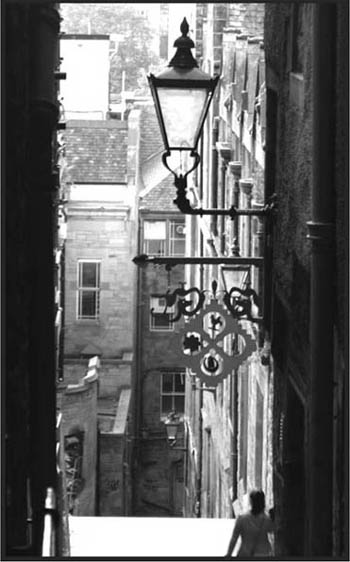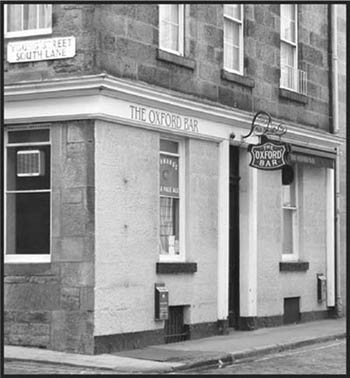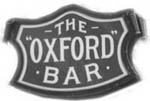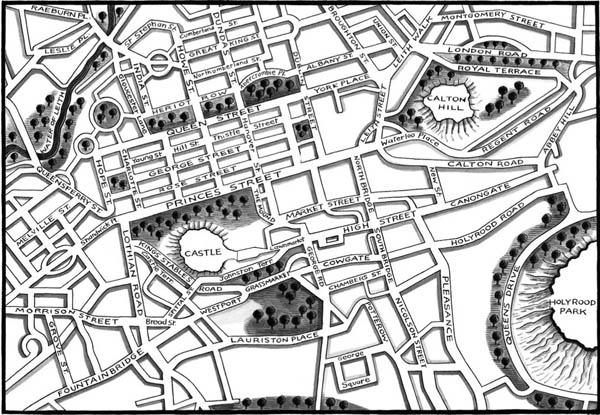Set in Darkness (55 page)
Authors: Ian Rankin

 Introduction to DI John Rebus
Introduction to DI John RebusThe first novels to feature Rebus, a flawed but resolutely humane detective, were not an overnight sensation, and success took time to arrive. But the wait became a period that allowed Ian Rankin to come of age as a writer, and to develop Rebus into a thoroughly believable, flesh-and-blood character straddling both industrial and post-industrial Scotland; a gritty yet perceptive man coping with his own demons. As Rebus struggled to keep his relationship with daughter Sammy alive following his divorce, and to cope with the imprisonment of brother Michael, while all the time trying to strike a blow for morality against a fearsome array of sinners (some justified and some not), readers began to respond in their droves. Fans admired Ian Rankin’s re-creation of a picture-postcard Edinburgh with a vicious tooth-and-claw underbelly just a heartbeat away, his believable but at the same time complex plots and, best of all, Rebus as a conflicted man trying always to solve the unsolvable, and to do the right thing.
As the series progressed, Ian Rankin refused to shy away from contentious issues such as corruption in high places, paedophilia and illegal
immigration, combining his unique seal of tight plotting with a bleak realism, leavened with brooding humour.
In Rebus the reader is presented with a rich and constantly evolving portrait of a complex and troubled man, irrevocably tinged with the sense of being an outsider and, potentially, unable to escape being a ‘justified sinner’ himself. Rebus’s life is intricately related to his Scottish environs too, enriched by Ian Rankin’s attentive depiction of locations, and careful regard to Rebus’s favourite music, watering holes and books, as well as his often fraught relationships with colleagues and family. And so, alongside Rebus, the reader is taken on an often painful, sometimes hellish journey to the depths of human nature, always rooted in the minutiae of a very recognisable Scottish life.


The Oxford Bar – Rebus and many of the characters who appear in the novels are regulars of the Ox – as is Ian Rankin himself. The pub is now synonymous with the Rebus novels to the extent that one of the regular medical examiners called in to assist with investigations is named after the pub’s owner, John Gates
.

Edinburgh plays an important role throughout the Rebus novels; a character itself, as brooding and as volatile as Rebus. The Edinburgh depicted in the novels is far short of
the beautiful city that tourists in their thousands flood to visit. Hidden behind the historic buildings and elegant facades is the world that Rebus inhabits.
regarding the Rebus series
How does Ian Rankin reveal himself as an author interested in using fiction to ‘tell the truths the real world can’t’?

There are similarities between the lives of the author and his protagonist – for instance, both Ian Rankin and Rebus were born in Fife, lost their mothers at an early age, have children with physical problems – so is it useful therefore to think of John Rebus and Ian Rankin as each other’s alter egos?

Could it be said that Rebus is trying to make sense in a general way of the world around him, or is he seeking answers to the ‘big questions’? And is it relevant therefore that he is a believer in God and comes from a Scottish Presbyterian background? Would Rebus see confession in both the religious and the criminal sense as similar in any way?

How does Ian Rankin explore notions of Edinburgh as a character in its own right? In what way does he contrast the glossy public and seedy private faces of the city with the public and private faces of those Rebus meets?
How does Ian Rankin use musical sources – the Elvis references in
The Black Book
, for instance, or the Rolling Stones allusions in
Let It Bleed
– as a means of character development through the series? What does Rebus’s own taste in music and books say about him as a person?

What do you think about Rebus as a character? If you have read several or more novels from the series, discuss how his character is developed.

If Rebus has a problem with notions of ‘pecking order’ and the idea of authority generally, what does it say about him that he chose careers in hierarchical institutions such as the Army and then the police?

